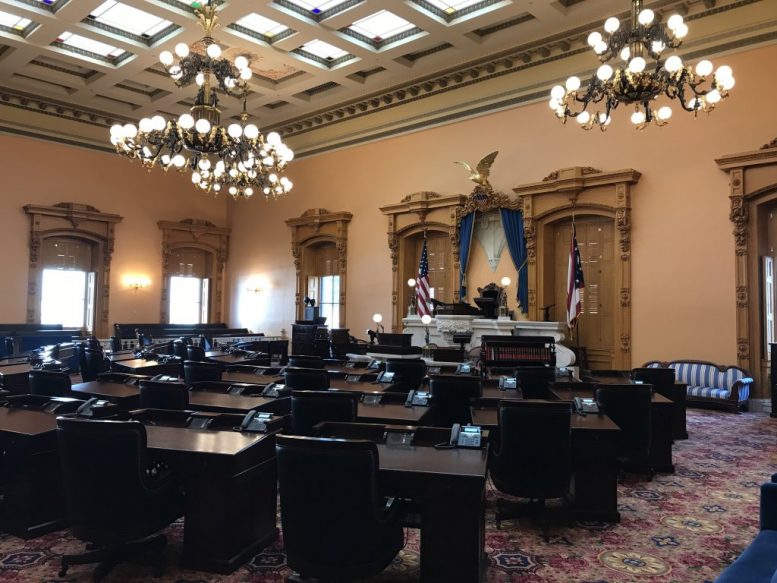Ohio Capital Journal
Republican lawmakers have tried for years to curb prevailing wage law in Ohio, and the most-recent effort calls for removing the law entirely.
The Capital Journal has reported that two Ohio House members, Ron Hood of Ashville and Bill Dean of Xenia, plan to soon introduce legislation to end prevailing wage.
Many of the sponsoring legislators of this and previous efforts have at least some financial ties to interests in favor of eliminating prevailing wage.
Hood is among them. State legislators are required to file annual financial disclosure statements with Ohio’s Joint Legislative Ethics Committee. In each year since rejoining the Ohio House in 2013, Hood has disclosed having worked for the National Right to Work Committee, a right-leaning organization which seeks to end “compulsory unionism” and prevailing wage.
Hood’s forms state he has earned between $25,000-99,000 per year since 2013 providing “communications” for the National Right to Work Committee.
Efforts and interests
Prevailing wage is a mandatory wage rate for laborers who work on publicly-funded projects. Ohio is among more than two-dozen states with prevailing wage standards, which are meant to guarantee fair rates of pay for workers. Critics say this law inflates a project’s cost and places an undue burden on local governments.
Prevailing wage kicks in for projects costing over $250,000, and there are exceptions for projects involving school districts.
Another bill proposed earlier this legislative session calls for making prevailing wage optional for governments and increasing the threshold to $500,000. House Bill 78 was introduced by Republican Reps. Craig Riedel of Defiance and Susan Manchester of Waynesfield. Hood and Dean are among the co-sponsors. This bill got its first Commerce and Labor Committee hearing in December, but no further action has been taken.
Riedel had tried and failed with a similar bill he’d introduced in 2017 with Republican colleague Kristina Roegner of Hudson, who is now in the Ohio Senate. Their HB 163 (again co-sponsored by Hood and Dean) also proposed allowing entities to “elect to apply prevailing wage law” to their projects, rather than it being mandatory.
In sponsor testimony, Roegner argued the labor component on public construction projects should be subject to competitive bidding. Riedel said prevailing wage law “is state government overreach into local government affairs and it works opposite of free market principles.
“The end result,” Riedel added, “will allow local governments to make decisions that benefit them and their local residents.” (Two years later, Riedel co-sponsored a bill forbidding local governments from enacting a plastic bag ban in their communities.)
In a subsequent committee hearing, lawmakers heard HB 163 testimony from nearly a dozen organizations, businesses and local governments — all lambasting prevailing wage law.
The fire chief of a rural department in Hocking County claimed the law drove up construction costs for a new station. A representative from the Ohio Chamber of Commerce said the law “interferes with the free enterprise principles espoused in (the Chamber’s) mission statement and limits the number of qualified contractors who may be able to bid on a project.”
The president of a Newark-based contracting company spoke about his experience with the Licking County Library Board of Trustees. Thaddeus Claggett, of Claggett and Sons Contracting, said the board’s goal of building a new learning center is hampered by the added construction costs associated with prevailing wage.
Claggett mentions, though, that the library’s revenue stream has been “cut significantly” because of “recent state budget cuts.” And a year later, after HB 163 died in committee, Claggett himself was able to afford a $250 donation to Roegner’s 2018 campaign for the Ohio Senate.
The Chamber of Commerce donated $500 to Hood in 2019, campaign finance records show. The National Federation of Independent Business (NFIB), which also testified in favor of curbing prevailing wage with HB 163, has also donated to Hood, Riedel and Manchester in recent years.

